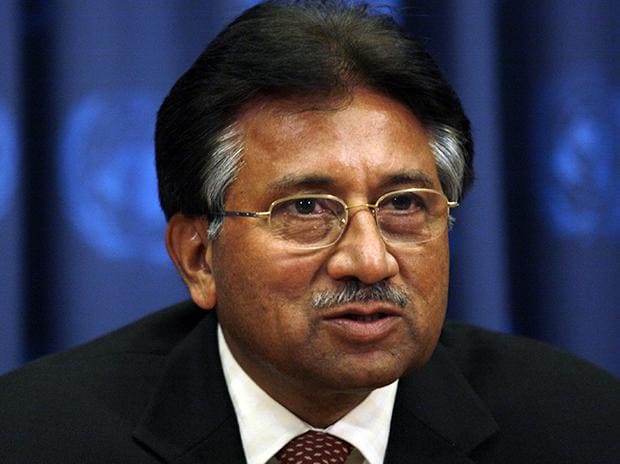[ad_1]
Pervez Musharraf (79), former General and President, and a Pakistani to the core, died in exile in Dubai on Sunday. He earned himself a place in history but had to pay a price that he would later confess to friends.
Musharraf took over the reins of Pakistan via a coup in 1999, months after then Prime Minister (PM) Nawaz Sharif signed a peace accord with Atal Bihari Vajpayee in Lahore.
The Kargil war had been fought and won by India and as Vajpayee visited the Minar-e-Pakistan, the site of the Lahore resolution that signalled Partition, he wrote in the visitors’ book: “A strong, stable, and prosperous Pakistan is in India’s interest. Let no one in Pakistan be in doubt. India sincerely wishes Pakistan well”.
Assuming Pakistan’s concurrence with these sentiments, he invited — at Deputy PM L K Advani’s insistence — General Musharraf for a meeting at Agra. That meeting, which could have changed the world, turned out to be a disaster.
Musharraf, while telling Vajpayee he was for peaceful resolution of all issues, including Kashmir, had been telling editors of newspapers over breakfast hours earlier that there was no difference between ‘jihadis’ in Kashmir and the Mukti Bahini in East Pakistan.
Confronted with the transcript, Musharraf, whose strongest character trait was that he hated to be questioned, simply shrugged. That the Agra meeting happened at all was in itself a miracle.
Musharraf’s inspiration was the great Turkish reformist, Kemal Ataturk. He had little patience with fundamentalists and saw himself as a “professional”, a pragmatic and flexible man who believed in the armed forces as the sole repository of legitimate force in society and the custodian of the nation.
The turning point was the US war against terrorism after 9/11 in which he participated with enthusiasm, earning Pakistan brownie points with the George W Bush regime.
He tried to modify Pakistan’s notorious blasphemy law, one of General Zia-ul-Haq’s legacies, but faced with resistance from the Islamists in the Army, had to retreat. While in India for the Agra summit, he told the Kashmiri Hurriyat conference leaders some home truths: “don’t expect us to keep bailing you out. You need to fight the war for Kashmir on your own”.
As a pragmatist, he understood quickly that he could not fight alone on so many fronts. He appointed Shaukat Aziz, who was in the World Bank at the time, as finance minister, who, in turn, tried to professionalise the running of Pakistan’s central bank and address the complicated issue of power and other subsidies. That was a halfway revolution, and it ended in abysmal failure.
Internally, Pakistan’s problems were mounting.
In 2006, on the orders of Musharraf, the Pakistan Army killed former junior interior minister and Governor of Balochistan, Nawab Akbar Shahbaz Khan Bugti, and over two dozen of his tribesmen, leading to widespread unrest in the area and a surge in the Baloch nationalist sentiment in the province bordering Iran, Afghanistan, and the Arabian Sea with a strategically important port of Gwadar. By then, Musharraf’s advisors — and their ranks had swelled — were telling him to shuck off the uniform, go legit, and join politics.
Listening to them was possibly the biggest mistake he made.
The 2007 assassination of former premier Benazir Bhutto followed. He had to leave Pakistan but announced his political party in 2010. His avatar as a neta was a non-starter. The past was quick to catch up.
In 2019, he was sentenced to death in absentia by a special court which found him guilty of high treason, for imposing a state of emergency on November 3, 2007, by keeping the Constitution in abeyance, and his complicity in Bhutto’s assassination. As he had already moved to Dubai in 2016, they were only charges and came to nothing. But he confessed to friends his sorrow that he had to leave his beloved mother to fend for herself in Karachi.
Musharraf was always jocular.
His ‘election’ as Pakistan’s President after a referendum in 2002 saw the enthusiastic participation of soldiers in stuffing ballot boxes. At a press conference in Kazakhstan in 2002, where he was attending a meeting of the Conference on Interaction and Confidence Building Measures in Asia after he had won the referendum and become President, Business Standard congratulated him for getting 98.8 per cent of the votes — no one in the history of India’s democracy had managed to achieve that degree of electoral success. He thought for a moment and replied: “If you are being sarcastic, I have nothing to say. If you are being sincere, I thank you”.

Clockwise from top: Pervez Musharraf during an ODI match between India and Pakistan, in Rawalpindi; Musharraf with his wife Begum Sehba at Taj Mahal in Agra; Musharraf with then Congress chief Sonia Gandhi, at Rashtrapati Bhavan in New Delhi; Musharraf with former Prime Minister (PM) Manmohan Singh during an India-Pakistan cricket match in New Delhi; Musharraf with former PM Atal Bihari Vajpayee in New Delhi. Photos: PTI
[ad_2]
Source link



